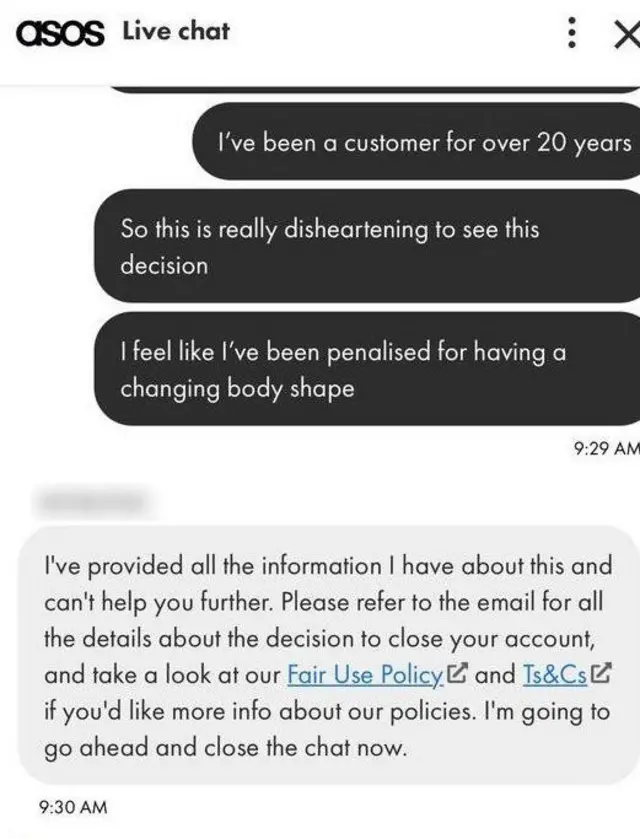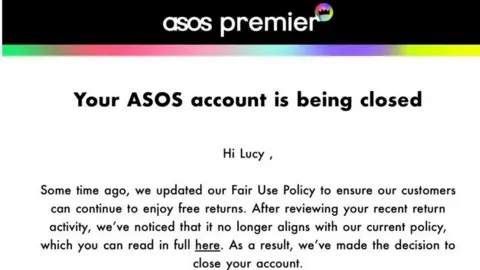
Popular online retailer ASOS is under fire after it reportedly banned numerous shoppers from its platform for returning too many items. Customers across the UK have taken to social media and the press, calling the bans “a slap in the face.”
What Happened?

ASOS has begun enforcing its fair use policy, which targets customers who make excessive returns—especially if the returned items appear worn. The policy crackdown, first signaled in 2019, appears to have intensified this month with many long-time buyers being abruptly notified that their accounts will be permanently closed.
Customer Backlash
Several loyal shoppers, including influencer Lucy Britnell and PR executive Frankie Allen, were stunned by the move. Many reported buying multiple sizes to ensure fit due to inconsistent ASOS sizing—only to find themselves banned for “unusual return activity.”
“I spend at least £100 a month with ASOS. Their sizing isn’t reliable, so I return what doesn’t fit,” said Britnell, who had been a customer for over a decade.
Company Statement

In a statement to the BBC, ASOS said, “We recently closed the accounts of a small group of customers whose shopping activity consistently fell outside our fair use policy.” The company claims the move protects its ability to offer free returns to the broader customer base.
Read the full BBC report on ASOS’ return crackdown
Industry Trends and Sustainability
Returns are a major cost for online fashion retailers. Processing fees, environmental waste, and customer fraud make returns unsustainable at scale. ASOS charges £3.95 for certain high-return patterns, similar to policies adopted by Zara, H&M, and Pretty Little Thing.
Retail analyst John Stevenson from Peel Hunt called account closures “a severe but possibly necessary step” as retailers struggle with inflation, freight costs, and sustainability goals.

Calls for Policy Reform
Still, not all agree. Broadcaster and activist Tskenya-Sarah Frazer, who was also banned, launched a petition calling for ASOS to reconsider. “For people with niche sizing or disabilities, online shopping is a necessity—not a luxury,” she argued.
Conclusion
While ASOS aims to curb abuse and reduce e-commerce waste, critics argue the move alienates loyal customers who simply need to try before they buy. As online shopping grows and in-store options shrink, the tension between return policies and consumer freedom is only heating up.









